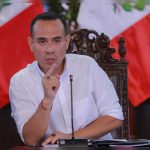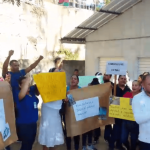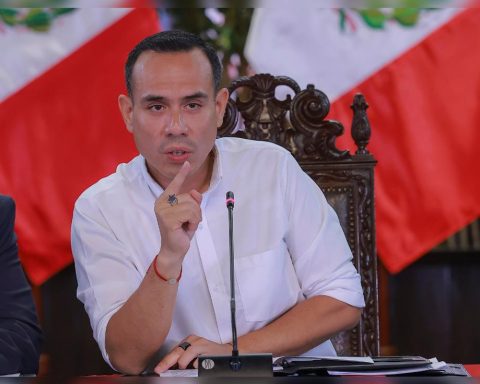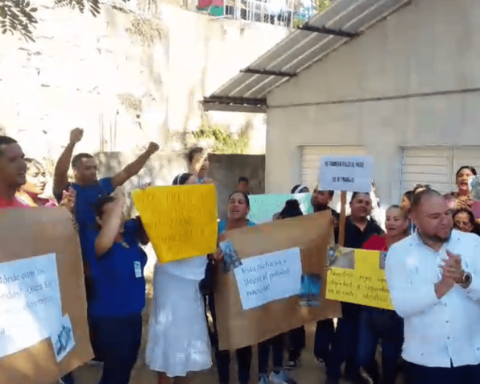The Argentine representative in the International Monetary Fund (IMF), Sergio Chodos, will participate this Tuesday in the first of the meetings of representatives of Economy of the G20 that will take place in Jakarta, Indonesia, in what will be a prior to the first summit of finance ministers and presidents of central banks of the G20 of the year, which will take place this Thursday.
It is there where the Argentine government will insist with its demands to lower IMF surcharges to countries with exceptional credits and give more flexibility in financing middle-income countriesin the context of the persistent pandemic and the definitive agreement that Argentina is negotiating with the credit institution.
The Minister of Economy, Martín Guzmán, announced that he will participate in the Summit virtually and that, instead, the Argentine director before the IMF, who historically participated in the economic negotiations in the G20, will attend in person.
For its part, the president of the Central Bank, Miguel Pesce, will also participate in the meetings virtually from Argentina.
Meanwhile, figures such as the managing director of the IMF, Kristalina Georgieva, and the head of the Treasury, Yanet Yellen, key executives in the negotiations that Argentina is carrying out to reach a definitive agreement with the Fund, also announced that they will remotely attend traditional meetings.
This Tuesday begins the first meeting of the year in Indonesia, the host country of 2022, to begin outlining the draft of the document that will be discussed at the ministerial level between Thursday and Friday, and where, in addition to the G20 countries, other organizations such as the IMF, World Bank, OECD and invited countries.
In October last year, at the Rome Summit, the G20 urged a review of surcharges at the IMF and seek new financing mechanisms for countries hit by the pandemic, among the main points of interest for Argentina.
The agency is expected to report on the progress made in putting together the new Resilience and Sustainability Trust Fund, another of the points urged by the G20, which would mean a new, more flexible line of financing, which could extend the repayment at the IMF for up to 20 years -when today they are no more than 10 years-, and extend the grace period for up to 10 years.
Is about more flexible conditions for countries in trouble, something that Argentina had also been requesting for the renegotiation of its current credit, although Guzmán specified that the route of the negotiations of the “principle of agreement” that was signed two weeks ago is moving towards one of Extended Facilities.

As for the surcharges paid by countries to organizations for requesting exceptional credits -as was the loan requested by Mauricio Macri-, Argentina will once again insist on reinforcing the request of the G20 of the Summit of presidents in Rome, where he urged the IMF to review the surcharges paid by countries, although since then the board has made very slow progress on the issue.
For the country these surcharges mean an expenditure of at least 1 billion dollars per year.
In this regard, at the end of last year Georgieva maintained that the Fund would re-analyze the issue of making surcharges more flexible during the first quarter of 2022, after learning that the December vote by the board of directors on this issue had been truncated by the tough position of the United States.
Then, this weekend it became known that the United States, the country with the highest voting power in the IMF, remains uncompromising with its position.
In this sense, the Joe Biden administration, through the Treasury, opposed a high request in a letter signed by 18 Democratic legislators, including Alexandria Ocasio Cortes, Ilhan Omar and Pramila Jayapal, according to international agencies.
Jonathan Davidson, Undersecretary of the Treasury for Legislative Affairs at the Treasury, told US lawmakers that “surcharge revenues for those countries that pay them help create precautionary balances to protect IMF shareholders against potential losses.”
Meanwhile, the clock is ticking to reach an agreement before the expiration date of March 22, where Argentina should disburse almost US$ 3,000 million.
Argentina finalizes technical details of the agreement to have them ready this week and the next, to go to the next instance of its approval in Congress, before the Fund’s board takes it to the board for voting.
In this sense, the opposition unified a speech and announced that it would accompany the Government so that the country does not fall into default, which was interpreted by President Alberto Fernández as “an act of good sense.”
On a technical level, both the IMF and Argentina stressed that they work “as quickly as possible” to arrive with the times and there is a dance management of both parties to include in the financial program of Argentina for the next 3 years other organizations with the IDB, the CAF, and the World Bank.
Sources aware of the negotiations told Télam that for this year they expect to collect some US$5,000 million from these organizations, which will come in the form of different types of social loans to benefit the most vulnerable, feed the supply of vaccines and carry out works. infrastructure, among others.
The same official sources indicated that “works with the conviction that the necessary votes of the board will be obtained to approve the agreement”instance in which the director of the IMF, Kristalina Georgieva, will raise for the analysis of the representatives of the 24 member countries.

















